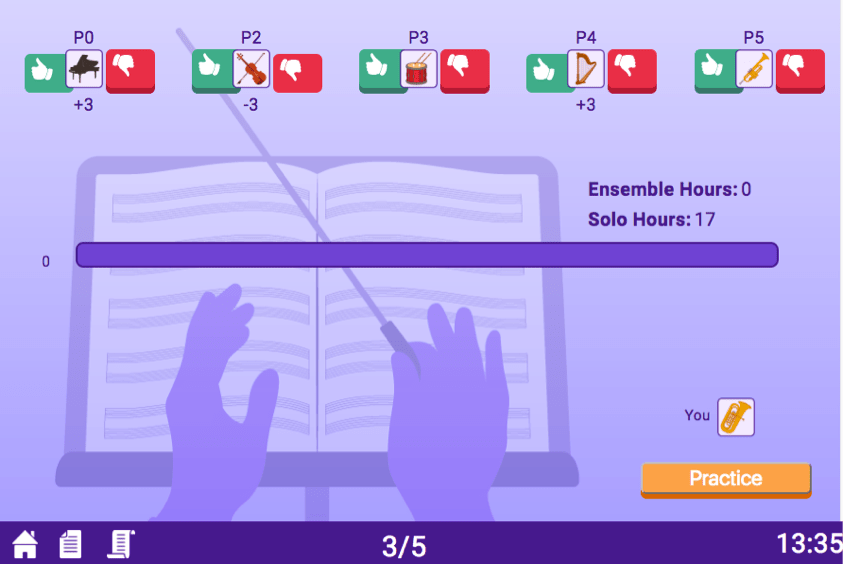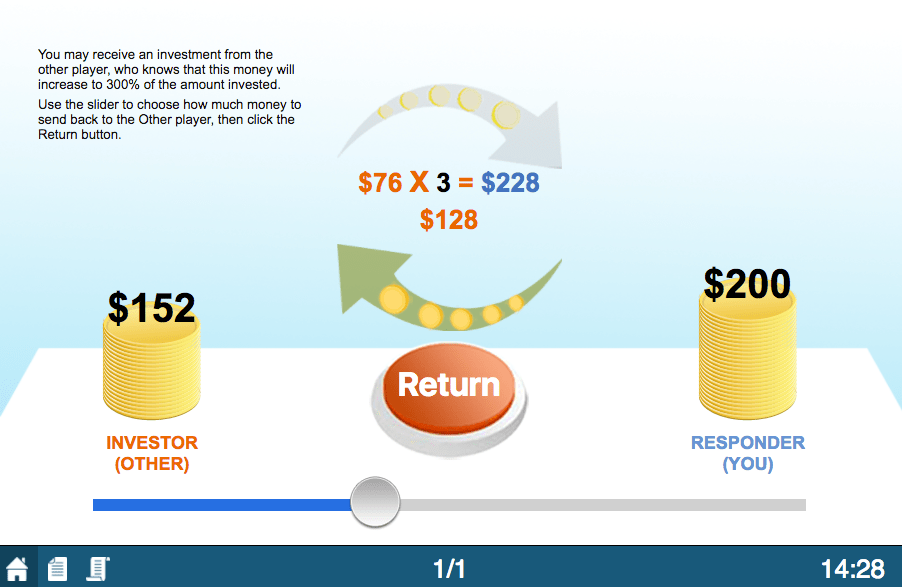We have a number of instructors using MobLab for their managerial economics courses. For example, see our conversation with Kevin McCabe. How does MobLab fit with managerial economics and organizational behavior courses? Really well. I would hazard to guess there are more applicable games than someone could reasonably play in a semester. What topics are covered with MobLab games?
In each outline below I link to our game guides and (where applicable) to our module guides. If you already have an account, you can check these games out in the game library. If you don’t have an account, create one. It’s commitment free and gives you access to all the materials. Here is the link to sign up.
For the oligopoly and collusion related topics, please see our post on Industrial Organization.
Team Incentives – The linear public goods game is the classic illustration of the incentive to free-ride in groups. In our Public Goods with Punishment and Rewards Game you can manipulate anonymity, enable chat, and allow for individuals to incur a cost to reward or punish other group members. This can be a great game to showcase the power of social sanctions and communication.

Equity and Fairness Concerns – The Ultimatum Game is a classic game to highlight equity and fairness concerns. It can be a great launching point to discuss how individuals evaluate outcomes and are willing to incur a cost to preserve norms.
Reputation and Trust – The Trust Game has been a workhorse game in organizational economics because, “Trust within organizations increases efficiency by lower monitoring costs (e.g. Frank, 1988), lowering turnover (Dirks & Ferrin, 2002), and increasing uncompensated positive behavior from employees (Dirks & Ferrin, 2002; Konovsky & Pugh, 1994).” (Johnson and Mislin, 2011). In essence, increased trust lowers transaction costs.

Asymmetric Information – The Lemons Market is a classic representation of the problems associated with asymmetric information.
Framing Effects – We have a number of pre-built surveys to help illustrate heuristics and biases like anchoring and insufficient adjustment, substitution heuristic, mental accounting, availability bias, and more. Our survey technology can be used to create your own framed experiments.
There are so many other areas we could explore here: risk preferences, minimum effort (coordination), auctions (e.g. private value, common value, ascending, descending, etc.), basic game theory concepts, competitive market, long run equilibrium, bargaining, etc.
We are also in the process of creating a Principal-Agent game that should be ready by early fall 2017. Keep an eye out for that! Beyond games, it is worth mentioning that our survey technology can be used to poll students on class content regardless of subject.
Please contact us at support@moblab.com with any additional questions.

